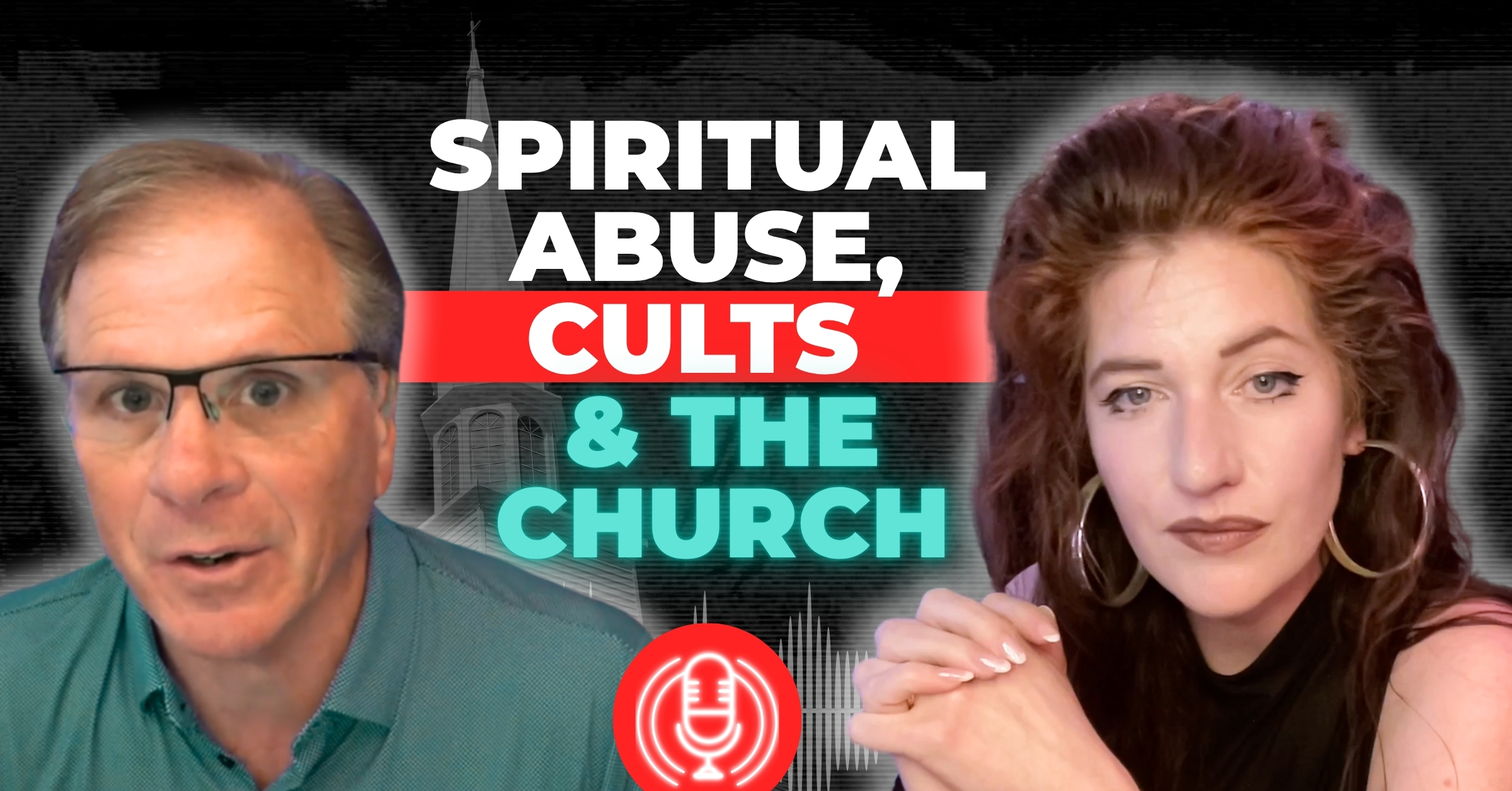One of the basic principles that atheistic scientists live by is that science is based on evidence and religion is based on faith. I scarcely have to provide examples of atheistic scientists telling us that for something to be scientific, it must be evidence-based, and it must rely on the time-honored methods of scientific inquiry. Nor do I need to provide examples of them telling us there is no scientific evidence for the existence of God or miracles, and that all religious doctrine is faith-based. Theism, we are told, is based on faith with no objective or valid (which, of course, means scientific) evidence to support it. Even a cursory reading of the publications of the [relevant] atheists will yield example after example of both of these claims.
Science, we are told, has found no evidence for the existence of God. The conclusion atheists have drawn from this is that science has discredited theism. If we theists would think scientifically, we would acquiesce to this line of thinking and abandon our belief in God. That we do not do so supposedly proves we aren’t committed to evidence-based ideology, but that we are instead committed to accepting vacuous assertions on blind faith.
I am, however, constrained to point out the following:
- There are numerous claims atheists make that are based on faith and faith alone.
- Many of the claims of the atheists are not scientific at all, but are purely philosophical, even though they are presented as profound scientific conclusions.
The Origin of Life
The first example of faith-based claims from the atheists is their belief in spontaneous abiogenesis. The truth is, we have no scientific evidence that spontaneous abiogenesis ever occurred.
Naturalist Karl Popper:
“What makes the origin of life and of the genetic code a disturbing riddle is this: the genetic code is without any biological function, unless it is translated; that is, unless it leads to the synthesis of the proteins whose structure is laid down by the code. But . . . the machinery by which the cell (at least the non-primitive cell, which is the only one we know) translates the code consists of at least fifty macromolecular components which are themselves coded in the DNA. Thus the code cannot be translated except by using certain products of its translation. This constitutes a baffling circle; a really vicious circle, it seems, for any attempt to form a model or theory of the genesis of the genetic code.”[1]
John Horgan:
“[Stanley] Miller’s results seemed to provide stunning evidence that life could arise out of what the British chemist J.B.S. Haldane had called the ’primordial soup.’ Pundits speculated that scientists, like Mary Shelley’s Dr. Frankenstein, would shortly conjure up living organisms in their laboratories and thereby demonstrate in detail how genesis unfolded. It hasn’t worked out that way. In fact, almost 40 years after his original experiment, Miller told me that solving the riddle of the origin of life had turned out to be more difficult than he or anyone else had envisioned. He recalled one prediction, made shortly after his experiment, that within 25 years scientists would ‘surely’ know how life began. ‘Well, 25 years have come and gone,’ Miller said drily.”[2]
The tragically credulous among us who have become convinced that Stanley Miller solved the puzzle of how life began on this planet do not understand the reality of the situation.
When I studied paleontology at the University of Colorado, my professor stood up in front of the class one morning and declared the following: “We scientists believe in spontaneous abiogenesis by a leap of faith.” It is a working hypothesis atheists must subscribe to, or their entire ideology concerning the origin and evolution of life on this planet comes crashing down. There is an elephant in the room during every debate concerning evolution vs creation and atheism vs theism: without spontaneous abiogenesis, evolution occurring on its own in the natural world is meaningless and not worth talking about. It is the basis on which the subsequent process of gradual evolutionary transmutation through natural selection rests. If spontaneous abiogenesis never occurred, it’s all over for evolution. Yet atheistic evolutionists accept this bedrock proposition by blind faith without a shred of scientific evidence to support it. That means their entire evolutionary framework is built on a bedrock of faith.
Atheists have made numerous attempts to cope with this inescapable reality. They tell us that spontaneous abiogenesis occurred through natural processes guided by natural law. We just don’t know what those natural processes and laws are yet. But someday scientists will discover what they are, because that’s what science does.
It doesn’t take long to realize that this is nothing more than another article of faith being used in a desperate attempt to rescue the first article of faith from public humiliation. The idea that “science” often discovers what we were previously unaware of does not mean it will eventually discover principles that will explain everything we don’t currently know. Further, there is no scientific evidence to support the claim that science will someday discover these answers. This is a vast array of faith at work. It is faith in the gaps and nothing more.
Some atheists give us a principle they claim to follow and insists we must follow as well if we are to navigate the waters of reasons to invest in our beliefs about these matters, specifically about miracle claims: absence of evidence is evidence of absence. The idea is that there is supposedly no scientific evidence for the existence of God or miracles, therefore this should count as evidence that they don’t exist. If we accept that principle, the atheists should follow it as well, n’est-ce pas? So let’s apply it to both of the claims we examined above. There is no scientific evidence that spontaneous abiogenesis occurred. I’ve never heard an atheist scientist dispute this. If absence of evidence is evidence of absence, they should reject the entire idea of spontaneous abiogenesis on the grounds that there is no evidence that it ever occurred. But have they rejected it? Absolutely not.
What about the claim that science will eventually discover the natural laws that supposedly caused spontaneous abiogenesis to occur? There is no scientific evidence that science will ever uncover them either. If absence of evidence is evidence of absence, the atheists who believe this should reject it just like they should reject the idea that spontaneous abiogenesis ever occurred. Have they rejected this one? Not on your life. They still believe with steadfast optimism without a scrap of evidence that science will someday come through for them. I remind the reader that the mere fact that scientists have discovered the answers to numerous questions does not mean they will eventually discover all of them.
Beginning of the Universe
When theists broach the topic of the beginning of the universe, we point out with Leibniz that anything that has a beginning must have a cause. The universe has a beginning, and therefore has a cause. Since the universe is made up of space, time, matter, energy, and physical or natural laws, the cause of the beginning of the universe cannot be any of those things, and must therefore be spaceless, timeless, immaterial, and beyond the scope of natural law, since none of those things, especially natural law, existed prior to the beginning of the universe. The cause of the beginning of the universe must therefore be supernatural. But atheists tell us there is another possibility: the multiverse. The multiverse (the existence of multiple universes) can allegedly explain the cause of the beginning of our universe, and the multiverse is considered eternal or infinite, with multiple universes all causing the “creation” of more universes in an endless cycle making up a kind of universe factory. (I’ll save the atheists who believe in this idea the embarrassment of asking them what the cause of the multiverse was. It can’t be infinite or eternal for the same reasons our universe can’t.) This is what Lawrence Krauss believes.
When we had a real-time discussion with him during a book club session in mid-2021, he told us our universe had a beginning: “The universe didn’t exist, and then it did exist.” He dismisses any discussion of God by telling us he is not necessary for the explanation of the beginning of “our” universe, since the other universes can fill in that blank without having to resort to supernatural explanations. When we asked him if he had any evidence for the existence of other universes, or that they could be the cause of ours, his answer was “not yet, but I’m working on it.” In other words, he refuses to believe in God based on rational evidence, and rather accepts the existence of the multiverse on the basis of raw faith, and is confident he will find evidence for it sooner or later—again, an unqualified expression of blind faith. I use the word “blind” here because he has no idea whether such evidence will actually materialize. He simply hopes it will . . . by faith.
It appears the principle of “the absence of evidence is evidence of absence” applies only to theism and miracles, and doesn’t apply to the ideology of the atheists who promote it. If it did, they would have to reject their own fundamental assumptions. But if they did that, their whole atheistic evolutionary framework would tank. Yet atheistic scientists continue to blast theists for our alleged faith-based beliefs. Breathtaking.
The irony is that faith plays no role in theistic or Christian epistemology whatsoever. In my debates with atheists, I would never offer any proposition and ask that it be accepted on blind faith with no empirical or analytic evidence to support it. We don’t say, “just have faith, my child,” or “we know God exists and he created the world because the Bible says so.”
Defining Faith
I don’t know how many atheists or even theists realize that there are always two definitions of faith involved in the dialogue. It is typical for this equivocation to undermine the clarity of these discussions, and to render them fruitless. The modern definition of faith is believing in something with no evidence to support it. The biblical definition of faith is altogether different: putting your trust and confidence in something that has proven itself to be trustworthy. We all have faith in airline pilots and mechanics because they have a track record of safety we can all live with. We don’t step on board that plane simply because someone told us to believe we will be safe when we have no reason to trust them. Biblical faith is not even remotely similar to modern faith. Modern faith is a putative basis for knowledge. Biblical faith is the basis for a relationship, not knowledge.
The modern concept of faith is substantially grounded in existentialism. Science and reason led to despair, so if anyone wanted to believe in anything having meaning, they had to make a blind leap of faith into the upper story where love and hope had meaning but were devoid of reason. Francis Schaeffer showed us that Christianity offers a unified field of knowledge that encompasses both the lower story of science and reason, and the upper story of love and hope. It is not necessary to abandon reason, or to abandon hope. Both are upheld in a comprehensive worldview that tells us what we need to know in all areas of knowledge, and forms a solid basis for scientific inquiry as well as philosophy. Schaeffer’s booklet No Final Conflict is quite helpful in understanding that authentic faith and reason are not at odds with each other, but actually reinforce each other in a way that brings a refreshing optimism to intellectual pursuits. Christianity has nothing to fear from science, and vice versa.
Alvin Plantinga further underscores this point:
If my thesis is right, therefore—if there is deep concord between science and Christian or theistic belief, but deep conflict between science and naturalism—then there is a science/religion (or science/quasi-religion) conflict, all right, but it isn’t between science and theistic religion: it’s between science and naturalism. [3]
Even though serious theism and Christian ideology is evidence-based, unfortunately there are still many Christians who exercise blind faith that looks more like existentialism. And there are many atheistic scientists who rely on pure faith for some theories, but routinely rely on evidence for many of their scientific conclusions. So instead of saying science is purely evidence-based and religion is purely faith-based, the point needs to be revised to say the following: scientists embrace ideas that can be both evidence-based and faith-based, and the same can be said of pedestrian theism. Scholarly theism, however, does not rely on blind faith. But atheistic science relies on a foundation of faith, even though much of its study is also evidence-based. Embracing this more realistic assessment of the situation takes the extremism out of it and allows for a more fruitful dialogue.
We also need to recognize that scientists, and those who are atheists in particular, often make observations that are purely philosophical rather than scientific. The fundamental thesis that science is exclusively evidence-based is one of them. That is not a scientific statement, it’s a philosophical statement about science. It’s a second-order proposition rather than a first-order conclusion about their primary subject of study derived from scientific means and methods. There are more examples:
- Science has disproved God.
- The idea that the universe can come from and by nothing is a valid scientific idea.
- If the non-material world existed, there would be scientific evidence for it.
- Scientists are the new torch-bearers in the pursuit of knowledge.
- Empirical science is the proper discipline to address questions of God’s existence.
There are numerous others. All of the above propositions are false. That atheistic scientists pretend they are speaking as scientists when they say these things should be strongly discouraged. Either that or they should make it clear to their readers and listeners that what they are saying is philosophical and not scientific. I have no objection to scientists speaking as philosophers. But I do object to doing so without admitting it, and worse, without realizing it.
Improbability: A Theistic Objection
There is a deeper issue here that we must address. The most common objection theists have against the occurrence of the evolutionary process in the absence of intelligence is that it is immensely improbable. This is a strong objection, to be sure. But it’s not the strongest. What do I mean?
If you demonstrate that something is possible, you haven’t demonstrated that it’s actual. But if you demonstrate that something is actual, you have automatically demonstrated that it’s possible. What atheists must show is not that evolution could have occurred. They must show that evolution did occur. Based on this principle, if you can show that evolution is possible, you haven’t provided a scrap of evidence that it happened. That’s a completely different matter. At the end of the day, who cares if evolution is possible? The only thing we should be interested in is whether or not it happened, not whether it could have.
So, there are two categories of evidence evolutionists are interested in: evidence that it might have occurred, and evidence that it did occur. The only evidence that matters is the evidence that it did occur. And the evidence we are given that it did occur is in the form of a series of predictions which evolutionary theory makes. That those predictions occur, however, is not evidence for evolution, unless they are unique to evolution, which they are not. Every prediction coming from evolutionary theory is also consistent with other theoretical models describing the origin of the life forms in question. Predictions that are shared by competing theories are of no value in deciding which theory is sound, and therefore must be discarded. Since these predictions are not evidence for evolution, but are all we are given, the uncomfortable truth is there is no empirical evidence for evolution.
This is why the problem of faith is so central to the discussion. Atheists not only have faith that macroevolution could have occurred, they have an even stronger faith that it actually did. The second case of blind faith is more problematic than the first. We hear from the four horsemen that evolution is a fact, not just a theory. In an article in the prestigious Scientific American, we are told the following: “In addition to the theory of evolution, meaning the idea of descent with modification, one may also speak of the fact of evolution.”[4]
Richard Dawkins himself has this to say about the matter: “One thing all real scientists agree upon is the fact of evolution itself. It is a fact that we are cousins of gorillas, kangaroos, starfish, and bacteria. Evolution is as much a fact as the heat of the sun.” [5]
Apparently if a scientist doesn’t think evolution is a proven “fact,” they are not a “real” scientist.
I have a lot more sympathy for someone who believes in a possibility by faith than I do for someone who believes in a concrete actual occurrence by faith. If faith is not a valid basis on which to form a scientific theory, letting it be the basis for a fact is more of a disaster than it being the basis for a mere possibility. [6]
Atheists Are Dependent on Evolution
We also must address the uncomfortable reality that atheists are desperately dependent on evolution and an old universe for their worldview to survive. Without evolution and an old universe, atheism dies a billion deaths. That atheists need evolution and the old universe to be scientific facts does not mean they are false. But we must not forget that they are both based on articles of faith for the atheistic scientist. This means that their need for these theories does in fact play a role in their ideology, whether it’s comfortable to admit that or not. For evolution to occur, there must be enormous periods of time to accommodate it. If that kind of time isn’t available, evolution is rubble. I always urge serious caution when one dogma is absolutely necessary to support another one. If there is no God, evolution is the only option, whether it’s true or not. Therefore, it has to survive all intellectual scrutiny whether there is evidence for it or not, and whether other theories do a better job of accounting for all the data or not. Another way to put this is that atheistic naturalism demands and requires these dual ideas: evolution and the old universe. If either one or both are discredited, the dual ideologies of atheism and naturalism are nonsense.
So, if you adopt the worldview of atheism, you automatically sign up for naturalism, and you have no choice but to sign up for both evolution and an old universe. The reality is, committed atheists would believe in evolution and the old universe whether there was scientific evidence for them or not. Their worldview demands it. Those who are trained in philosophy see this as a gigantic red flag. Suddenly, evidence has actually become superfluous and irrelevant. If an atheist who wants to hang on to his worldview will believe in these things even if there is no apparent evidence for them, he may as well not even concern himself with the evidence at all.
As usual, I am not the only one who has marshaled this observation. In his book Darwin on Trial, Philip Johnson relates a similar point:
“Darwinists who do not simply ignore the problem resort to bad philosophy to evade it. For example, Mark Ridley asserts that ‘All that is needed to prove [macro]evolution is observed microevolution added to the philosophical doctrine of uniformitarianism which (in the form that is needed here) underlies all science.’ But what sort of proof is this? If our philosophy demands that small changes add up to big ones, then the scientific evidence is irrelevant. ”[7]
When Johnson comments on Stephen Jay Gould’s theological musings, he describes the vacuity of such speculations:
“Gould here merely repeats Darwin’s explanation for the existence of natural groups—the theory for which we are seeking confirmation—and gives it a theological twist. A proper Creator should have designed each kind of organism from scratch to achieve maximum efficiency. This speculation is no substitute for scientific evidence establishing the reality of the common ancestors. It also does nothing to confirm the natural process by which the transformation from ancestral to descendent forms supposedly occurred.”[8]
This posture where philosophical commitments eclipse empiricism is as disturbing to the philosopher as it is embarrassing to the atheist, whose ideology is grounded more in the philosophy of evolution than the science of evolution. As uncomfortable as this is, it cannot be ignored by anyone involved. Not only is there no respectable evidence for evolution, the atheist scientist who believes in it would do so mainly on the basis of these philosophical presuppositions. Philosophy is primary; science is secondary, and only serves to induce the illusion of credibility. This is one of the main reasons atheistic evolutionists remain faithful to the Darwinian dogma even when empirical evidence and natural law fail to confirm it. That they are willing to wait indefinitely for new discoveries they hope will finally support what they have until now held by stubborn iron-clad faith tells us all we need to know about the status of evolutionary “science.” The evidence truly is lacking, and the situation has not improved since the time of Darwin. It has only become worse. [9]
Someone in the atheism school might object by saying it was the scientific evidence for evolution—among other things—that inspired him to abandon theism and not the other way around. But that ignores the fact we observed before: there is no scientific evidence that evolution actually occurred; it is an article of faith and not a conclusion derived from scientific evidence. The best that the evidence could ever do is show us that evolution could have occurred. Even that “evidence,” if it exists at all, is flimsy. If the alleged lack of evidence for the existence of God is what turned the former theist over, this is a faith-based maneuver as well: no amount of scientific evidence can show that God does not exist. So, all that the former theist who has abandoned theism for atheism has done is exchange one set of what he thought were faith-based beliefs for another set that actually is. He hasn’t traded in superstition for science. He’s done the opposite.
As for the old universe, it is necessary for atheism. But even though it’s necessary, it’s not sufficient, so it’s not relevant to the issue of abandoning any particular worldview. Theism is comfortable with an old universe or a young one. But a young one is fatal to atheism, which is one of the reasons why it is unthinkable for the atheist. This again renders the evidence superfluous. The real reason the committed atheist believes in an old universe is that he has no choice. If there is apparent evidence for it, it is secondary. If the evidence is valid, this is a matter of mere convenience, but it is not central to the discourse. What counts is the antecedent predisposition against the supernatural, and that’s a matter of philosophy, not science. Yet these philosophical considerations are nevertheless presented as hard science to audiences who are hardly capable of differentiating between the two. The atheists know full well that this works beautifully to their advantage.
Questioning Gould
When he visited Denver in the early 90s, I asked Harvard paleontologist Stephen J. Gould the following question: “How do you respond to the observation that the only evidence for punctuated equilibrium is the lack of evidence for gradualism?” His response was quite revealing: “I would respond by saying that it’s the only alternative. Well, there is another alternative, but that one is unthinkable. Hell, let’s just say there is no other alternative and leave it at that.” The audience erupts with thunderous laughter and enthusiastic applause. They looked at me as though my knuckles were dragging on the floor. But they were missing the elephant in the room: Gould didn’t correct me by saying there is positive evidence for punctuationism. His answer assumed there wasn’t, and that I was correct in pointing that out.
This illustrates what Gould has actually stated in his book Wonderful Life: The Burgess Shale and the Nature of History. Scientists are not completely objective in the sense that their worldview has a significant influence on their theories.
Consider the old universe ideology. That there is an enormous distance between celestial objects means it has to take untold millions of years for light to reach a potential observer far away from the source. This is considered scientific evidence for an old universe. But there are monstrous hidden assumptions beneath the surface here: that light has always traveled with the same velocity we observe today, and that the laws of physics (whether conventional or exotic) apply to the origin of the universe. In other words, there is an implicit adoption of uniformitarianism and naturalism involved. The idea that the origin of the universe could have been supernatural is verboten. That atheistic scientists rely on a naturalistic foundation scarcely needs to be questioned. But the old universe theory loses its footing if naturalism is abandoned. What we must understand here is that the ideology of an old universe is not ultimately grounded in science. Science may be involved, but it usually rests on naturalism, and naturalism is a philosophical disposition, not a scientific one. So, the old universe depends on philosophy at its core and not on science alone. The idea that there is scientific evidence for an old universe assumes the origin of the universe was naturalistic in nature and that naturalistic science has the last word on how it occurred. If naturalism is false, all bets are off. Strictly (and philosophically) speaking, natural law could not have caused the origin of the universe. As I state elsewhere, the origin of natural law cannot be natural law. This means the origin of the universe and natural law itself is by definition supernatural. If this is the case, we cannot necessarily trust our naturalistic assumptions in speculating on the age of the universe. Age is suddenly not even a coherent concept when it comes to measuring the nature and roots of the universe’s existence.
I want to avoid the confusion of thinking I’m talking about apparent age here. Even apparent age relies on some naturalistic assumptions, namely, that the speed of light is not subject to change as a result of the influence of supernatural forces. If naturalism is false, apparent age is extraneous. And the fact that the origin of natural law cannot be natural law proves that naturalism is false. What I am suggesting is not apparent age, but that the very concept of the “age” of the universe using conventional methods of measuring time may in fact be meaningless, especially as you approach the early stages of contingent existence. This does not mean the universe is ageless and had no beginning. But if God exists, and created the universe, we have no way of knowing when the supernatural forces ended and when the natural ones began, which means we may not be able to determine how long ago that beginning occurred. And there are no rules God would be obligated to obey in such a scenario—certainly none that we could invent.
That theism has nothing to fear from the outcome of the evolution debate or the old universe debate leaves the theist free to follow the evidence wherever it leads. It also leaves him free to follow evidence from a variety of intellectual disciplines without being confined to the physical sciences alone. This is made possible by the appropriate rejection of the self-contradictory sophistry of scientism. But the atheist has no such freedom if he is to remain an atheist. He is forced to accept evolution even if it’s false, and to reject some creation model even if it’s true. The same is true of the old universe.
Scientism
Once someone becomes an atheist, the most common sequel as far as I have seen is for him to adopt the ideology of scientism. Suddenly science becomes the only avenue through which to pursue truth. In fact, the adoption of scientism has sometimes even preceded the abandonment of theism and has led to it. It can occur in either order. But regardless, when you abandon theism, you seldom retain any confidence in theology or anything that would tend to support the possibility of miracles. So, the incipient atheist locks himself in a cage of truncated intellectual pursuits that render philosophy, certainly theology, and sometimes even history irrelevant. This dramatically decreases the chances the atheist will be swayed by the powerful philosophical arguments against atheism and thus bring him back from the abyss.
If there was a more serious consideration of the relevant and inescapable philosophical issues involved in this debate, more attention would be paid to the disparity between what we can observe in the present and what we can know of the past. The truth is, what has occurred in the past is more within the purview of history than science. I am not suggesting that science can’t address questions of what has occurred in the past. I’m saying only that theories about the remote past are a different kind of theory than theories about the present or the recent past. The former category has more to do with forensics than with experimentation or direct observation. Once you open the container marked forensics, you have broadened the scope of your investigation to include disciplines that are beyond conventional natural science.[10]
What is it that discourages this broader approach? The answer is simple: scientism. Another way of putting it is scientific arrogance, the kind that says science is the only source of truth, and that scientists are the torch-bearers of human knowledge—to the exclusion of historians, philosophers, and theologians. It used to be that the last two in the list enjoyed the respect of scientists. Historians still do to an extent, but even their discipline has been held in contempt in modern times for failing to be scientific enough.
An Engineering Problem for Atheism
To close, I want to briefly offer some insights on some scientific concepts for your consideration and to further illustrate the weight that philosophical considerations have on this discourse.
I would like to introduce an idea that we could properly call a cybernetic principle. The core ideas in this vein can be partly attributed to Dr. A. E. Wilder-Smith, author of The Natural Sciences Know Nothing of Evolution. It goes something like this: the more intelligence and energy an engineer has at his disposal, the less time it will take for him to complete a complex mechanical project. The inverse is obvious: the less intelligence and available energy (or power) the engineer has at his disposal, the longer it will take him to complete a complex mechanical project. So, if the engineer wants to build a teleonomic (e.g. von Neumann) machine, intelligence—i.e., knowledge of the principles of engineering—and a substantial power source will be his best friends.
Now let’s perform a thought experiment. Suppose we reduce the intelligence factor to zero. That would increase the length of time to complete the engineering project to infinity. In other words, it would never be completed. This would also be true if we reduce the available energy or power source to zero as well. The lack of intelligence and/or available rectified energy means that no machinery will be constructed—ever. This is an exact representation of the universe in the absence of a powerful intelligent creator. This means that nothing like the complex machinery we observe in nature such as the DNA molecule will ever emerge. It should be noted that this is exactly where Dawkins and company begin: a universe completely devoid of intelligence. Do the math.
But what if we increase the intelligence and specific available rectified energy to infinity? We would have an unlimited reservoir of intelligence and an unlimited usable power supply. What happens to the time required to complete the teleonomic project now? It reduces to zero. In other words, the idea that a powerful intelligent infinite being can create complex teleonomic forms instantaneously is hardly unscientific nonsense or superstition.
This is a valid scientific principle and it is properly supervised by concepts in the philosophy of science. There is one thing and one thing alone that can render this ideology absurd: naturalism. That’s it, and that’s all. Notice that it is not rendered absurd by science, but by philosophy, and as we have seen, philosophy that is intrinsically faulty and incoherent. I would recommend pointing this out the next time someone tells you that creationism is nothing more than ignorant superstition.
The typical atheist scientists would object to the above by saying we are invoking metaphysics in the explanation of these origins. My reply would be, “you’re catching on.” And the truth is, whether they know it or not, and whether they will admit it or not, so are they.
References:
[1] Karl Popper, “Scientific Reduction and the Essential Incompleteness of All Science,” Studies in the Philosophy of Biology, Francisco Ayala and Theodosius Dobzhansky, eds. (Berkeley: University of California Press, 1974), 270.
[2] John Horgan, Stanley Miller and the Quest to Understand Life’s Beginning, Scientific American, July 29, 2012.
[3] Alvin Plantinga, Where the Real Conflict Lies, preface, emphasis in the original.
[4] https://www.scientificamerican.com/article/15-answers-to-creationist
[5] Richard Dawkins, The Illusion of Design, Natural History 114 (9), 35–37, emphasis mine.
[6] There are some scientists who reject this distinction between a fact and a theory. They will insist that a theory can be said to be as strong as a fact if there is enough support and consensus in favor of it. This is why we often hear an objection when someone points out that evolution is only a theory, and therefore does not need to be taken as seriously as it would if it was a more substantially grounded and reliable fact, and it therefore should not be the only explanation of origins taught in schools. The debate rages on. However, at the end of the day, we must be certain we recognize that the distinction between fact and theory is a philosophical debate, and not a scientific one. So the attitudes some scientists have concerning this issue are interesting, but they should be encouraged to make it clear that when they comment on this issue, they are speaking as philosophers, and therefore their credentials as scientists do not necessarily carry a great deal of weight on this question.
[7] Philip Johnson, Darwin on Trial, 92, emphasis mine.
[8] Ibid., 94, emphasis mine.
[9] See Stephen Meyer, Darwin’s Doubt (2013), Michael Denton, Evolution: Still A Theory In Crisis (2016), and Michael Behe, Darwin Devolves (2019).
[10] [Editor’s Note: The author seems to be distinguishing experimental science from historical science. This division separates fields like biology, chemistry, and physics, on one hand from all forms of historical study such as archaeology, history [proper], anthropology, and forensics. Both experimental and historical science are conventionally recognized as facets of natural science [i.e., the study of what has/does/will happen in nature, given natural causes]. The experimental sciences, however, involved controlled experimentation, and can involve rigorous methods of testing including repeatability. Historical sciences are inherently limited this way, since no past event can ever be repeated, strictly speaking (January 17, 1919 only happened once in all of human history). In that way, experimental science tends to carry more clout in certain naturalistic and anti-theistic circles. Informally speaking, experimental sciences are sometimes called “science” whereas historical sciences are called “history.” That seems to be how Blair is using the terms here, even if, strictly speaking historical science is still a legitimate field of science.]
Recommended Resources:
How Philosophy Can Help Your Theology by Richard Howe (MP3 Set), (mp4 Download Set), and (DVD Set)
When Reason Isn’t the Reason for Unbelief by Dr. Frank Turek DVD and Mp4
Why Science Needs God by Dr. Frank Turek (DVD and Mp4)
Stealing From God by Dr. Frank Turek (Book, 10-Part DVD Set, STUDENT Study Guide, TEACHER Study Guide)
Phil Bair studied philosophy, technology, earth sciences, and music theory at the University of Iowa, the University of Colorado, the National Institute of Technology, and Simpson College in Indianola Iowa. He has been dedicated to independent study and research for over thirty years in a variety of subject matter pertaining to the Christian world view. He has written several monographs on the relationship between theology and hope, being true to the Word of God, the creation/evolution controversy, and critiques of alternative spiritual doctrine and practices. He has written multiple books (all available on Amazon by searching “Phil Bair”. He has delivered lectures, seminars, and workshops to churches and educational institutions on apologetics, textual criticism, creation science, ethics, critical thinking, the philosophy of science, understanding new age thought, and the defense of Christian theism, as well as current religious, philosophical, cultural, and political trends, with an emphasis on formulating a meaningful and coherent Christian response in those areas. His roles include author, speaker, Bible study leader and video editor. He has served as philosophy consultant and speaker for Rivendell, a cultural apologetics organization founded in Denver, Colorado and headquartered in Santa Barbara, California.
Originally posted at: https://bit.ly/3SWqvqX










